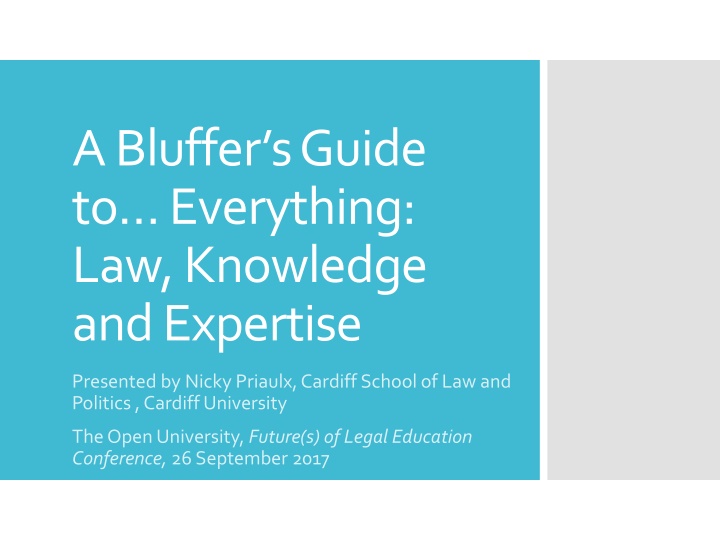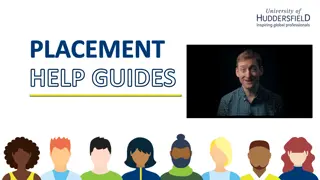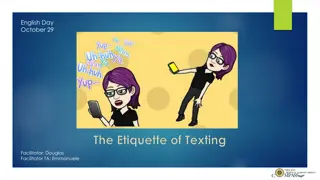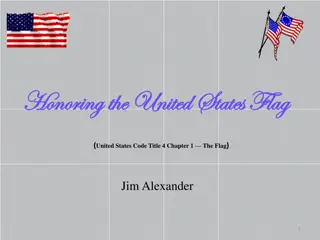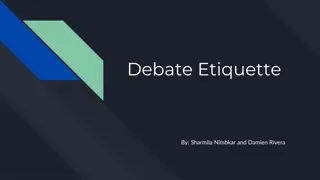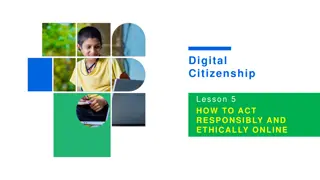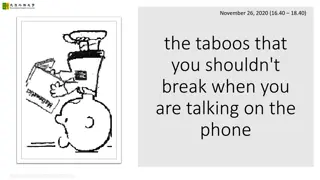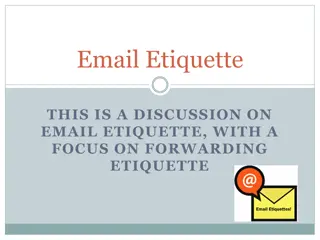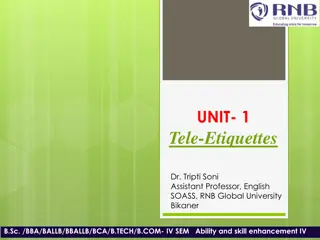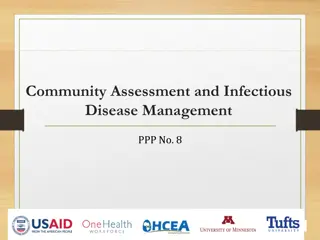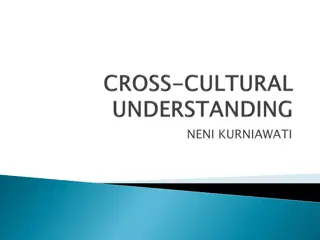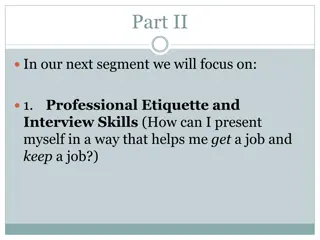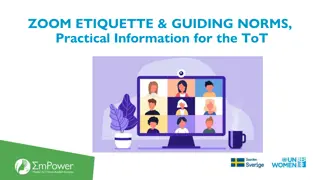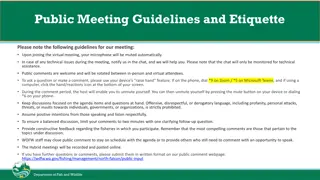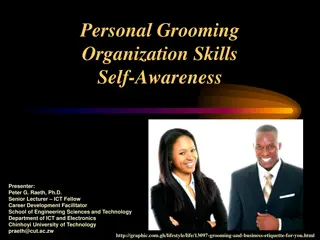A Bluffer's Guide to Law and Etiquette
In this collection of works, explore the realms of law, knowledge, and expertise, presented by Nicky Priaulx at Cardiff University. Discover insights on navigating legal landscapes with finesse and mastering the art of etiquette to impress others. Delve into a discussion on academic roles and responsibilities, shedding light on the multifaceted tasks beyond teaching and research. Uncover a collaborative journey involving co-authors, academics, and contributors in shaping a comprehensive understanding of various subjects.
Download Presentation

Please find below an Image/Link to download the presentation.
The content on the website is provided AS IS for your information and personal use only. It may not be sold, licensed, or shared on other websites without obtaining consent from the author.If you encounter any issues during the download, it is possible that the publisher has removed the file from their server.
You are allowed to download the files provided on this website for personal or commercial use, subject to the condition that they are used lawfully. All files are the property of their respective owners.
The content on the website is provided AS IS for your information and personal use only. It may not be sold, licensed, or shared on other websites without obtaining consent from the author.
E N D
Presentation Transcript
A Bluffers Guide to Everything: Law, Knowledge and Expertise Presented by Nicky Priaulx, Cardiff School of Law and Politics , Cardiff University The Open University, Future(s) of Legal Education Conference, 26 September 2017
While I presented this work at the Open University in September 2017, the body of work upon which this stands has been co-produced with Dr Martin Weinel (Cardiff University, Sciences) and Willow Leonard-Clarke (Cardiff University,School ofSocialSciences). School of Social Hundreds of others have also contributed to the development of this work including Professors Rob Evans and Harry Collins (Cardiff School of Social Sciences), members of the wonderful KES Research Centre, alongside discussions with colleagues University, and with scholars from a wide variety of disciplinesnationally,andinternationally. Co-authors and collaborators input from across through my Collaboration in this way can be hard (but also fun), and certainly takes longer but the point is, I have not done this alone (and as my presentation seeks to highlight, I could not have undertaken this alone).
A BLUFFERS GUIDE TO ETIQUETTE Bluffer s Guide to Everything It will give you a few easy-to-learn hints and methods that might even allow you to be accepted as an etiquette expert of rare ability and experience. But it will do more. It will give you the tools to impress legions of marvelling listeners with your knowledge and insight (images appear of books from the Bluffer s Guide series) (Hanson, E, The Bluffer s Guide to Etiquette (Bluffer s Guides, 2014). Well, depending on whom you re talking to
QUESTION POSED BY AN ACADEMIC WHO THEN JUDGES RESPONSES: Q: What do you do as part of your job that isn't teaching (or teaching related, like marking) and isn't research (or research related)? What we Know and What we Don t Know: Can Students Pretend to be Academics? ANSWERS GIVEN BY A STUDENT PRETENDING TO BE AN ACADEMIC AND AN ACADEMIC CAN YOU IDENTIFY THE ACADEMIC? I m the academic A1: My current administrative role is co-coordinator of an undergraduate teaching team, and I also sit on the University's criminal convictions review panel (which provides guidance to School's when they have had an application from a prospective student who has declared a criminal conviction). A2: Discussing essays and holding office hours for students. I m the student
Q: Tell me about your admin responsibilities and the typical things you have to do A1. I have many admin responsibilities, from marking or assessing PhDs, dissertations, independent studies and essays. Having 20 plus tutees generates a lot of paper work when over seeing pre-enrolment and enrolment, sorting out risk assessments for all the field and practical work. Don't get me started on the finance side - too much to rant about in such a short time. Can you spot the academic here? I m the academic A2: Unfortunately lecturing makes it difficult to switch off at the end of the day. I am often up late answering emails and arranging office hour appointments with students despite that being a task for the day. During the day, actual marking and checking work seems enjoyable in comparison to organising students and admin duties. I m the student
The previous two slides draw on data from the Imitation Game project. 2011-2016 European Research Council Advanced Grant (269463 IMGAME) 2,260,083 `A new method for cross-cultural and cross-temporal comparison of societies . The Imitation Game is an innovative method developed at Cardiff University. Based on the Turing Test, it seeks to measure the extent to which one group has insight into the norms and practise of another. It does this by getting the reference group (e.g. women) to ask questions they think that only people from their group (so, women) would know how to answer; a man and a woman then answer each question, with the man attempting to pass himself off as a woman. The female judge then assesses who she thinks is the pretender (man) and non-pretender woman. This is run across a question set. At the heart of this method, as with the broader work upon which it is based, is the idea of tacit knowledge . Our immersion in specific expert domains means that we pick up the tacit knowledge a range of unspoken conventions and practices largely inaccessible to outsiders . For more details about this innovative method, see: https://blogs.cardiff.ac.uk/imgame/imitation-game/ The Imitation Game Method
To the legal scholars and researchers answer the following: a) Shout out some of the leading journals in legal studies/law (b) Which of these does not constitute a high research- prestige marker for the REF (at the moment!) for legal researchers: 1. Peer-reviewed journal article 2. Monograph 3. Successful litigation of a case We are always Insiders and outsiders: What we Know and What we Don t Know Our 2017 survey highlights that non-academics have little insight disciplinary research norms into our BUT can YOU (c) name some of the leading journals in the fields of behavioural science, management studies, architecture, city planning, archaeology
What do we know, what can we know, what do we not know and what can we not know? Work around legal epistemology, feminist legal theory and gap theory highlights concern around some of these questions: Demonstrating the gap between law in the books and law in action The stories that judges tell of human life (long tradition in feminist legal theory demonstrating the how judges and legislators have pushed women s experiences through a male filter). We can t know everything so we need to ask the Question(s) In turn, interesting work written around legal interdisciplinarity that highlights perils for the unwary of moving into different fields, e.g. Vick, 2004: nuances of disciplines; terms and concept and distinctions made in foreign disciplines can be confused with home field; assumptions often very subtle; biases and limitations; risk of misinterpreting. Kellert, Borrowed Knowledge ChaosTheory My claim, in a forthcoming monograph (Regulatory Ergonomics: Rethinking the Legal Project and Facing Up to what We Don t Know (Routledge, 2018) is that the question of what we don t know and cannot know, is one we now need to centralise.
Beyond traps for the Unwary towards making people aware of the limits of their knowledge, why, and what to do about it More structured approach which takes much firmer and realistic view of technical expertise for such work found through Sociological Theory of Expertises (Collins and Evans 2007) Underpinned by idea of tacit knowledge This in turn informs the question of "who knows what they're talking about" expertise developed and maintained in groups We apply this to law/legal studies, bioethics and Science Communication. See further our paper on law: Priaulx, N and Weinel M (2014) Behaviour on a Beermat: Law, Interdisciplinarity and Expertise , Journal of Law, Technology and Policy 361-391 Inter- disciplinarity Traps for the unwary? Glass Walls
Can situate this in any context: From those engaged in the construction/design of law and policy As legal researchers and scholars who are engaged in a field which is inherently interdisciplinary we are often drawn into discussions and debates which extend beyond our training, and domain specific knowledge As providers of legal education, whether to: training of students and practitioners in other fields; the public(s) (e.g. committed to the aspirations of Public Legal Education, made that much more pressing by the Legal Aid, Sentencing and Punishment of Offenders Act 2012). Just as the question is relevant to everyone else (policy-makers, scholars from other disciplines dipping into other fields, those providing expert evidence in legal settings, and so on). Knowledge Gaps: Knowing what we Don t Know Focus here on capacity of actors to embrace insights from alternative disciplinary/sectoral domains Example of non-scientific section of the public (albeit intensive users of science): Lawyers
Lawyers using science Hedonic Adaptation/Adaptive Preferences Understanding Science: Promise and Perils - An Example Informing questions of legal policy around hedonic damages in personal injury law: Bagenstos and Schlanger, 2007 We discuss this in our 2014 paper.
Brickman and Campbell (1971) - proposed that while people react to good and bad events, in a short time they return to a position of neutrality. Found that because people are goal- seeking in nature and constantly strive to be happy, happiness and unhappiness merely constituted temporary and short-lived reactions to such events. Sought to provide empirical backing for this (lottery winners, individuals with paraplegia) Hedonic Adaptation/ Adaptive Preferences
Disability does not inherently limit enjoyment of life to the degree that these courts suggest. Rather, people who experience disabling injuries tend to adapt to their disabilities . Advocate shift in legal policy so that hedonic damages not awarded in respect of disability. Interesting points arise from their analysis, however Bagenstos and Schlanger (2007)
Work around hedonic adaptation/AP very much work-in-progress, producing contradictory results, over-statement of adaptation and critically, hedonic psychologists counsel against use for policy purposes. Daniel Kahneman (2009), despite initial enthusiasm for hedonic adaptation theory, subsequently noted, Social scientists rarely change their minds, although they often adjust their position to accommodate inconvenient facts. But it is rare for a hypothesis to be so thoroughly falsified. Merely adjusting my position would not do; although I still find the idea of an aspiration treadmill attractive, I had to give it up. (p. 197): Bagenstos and Schlanger: Overlook the concerns attending hedonic psychology and even explicitly dismiss them: 'We take a different tack' State of the Science
From comprehension of substantive facts, B&S understand (albeit at a non- specialist level) the papers they relied on to inform their policy proposals At the same time, they do not understand the meaning of those papers within the wider disciplinary context and this matters Key to this is a failure to understand the nature of science and to appreciate how science works Deep understanding is acquired through active immersion in a field. the perspective of basic Understanding what?
Without social contact/active immersion into expert community:- No access to oral discourse (different to published discourse) Logistical Problem (body of literature too large) Unable to understand the Relevance of Literature (importance/quality/permissibility of claims credibility e.g. not all science is good science) Unable to make relative assessments of technical claims (methods, similar studies, benefits of study) Unable to assess technical arguments and assumptions (concepts/terminology) Distance lends enchantment Those with only explicit knowledge (without 'local guides' possessing tacit knowledge of disciplinary cultures) lack genuine /deep understanding of technical issues to inform policy (see, Collins & Evans 2002; 2007; Weinel 2009).
Periodic Table of Expertise (Collins and Evans, 2007) Students Lawyers Scientists Men Rich Able-bodied Legal Academics Academics Science Law Women Poor Disabled Legal Practice Different worlds
SEE (Studies of Expertise and Experience) provides substantive theory by which to think about the extent to which our ability to understand any other discipline, sector or domain of experience that we are not immersed in, is limited Take home message is importance of collaborative interdisciplinarity: workingwith 'those who know what they're talking about' Ramifications for legal education, wide-ranging; Impact of LASPO12 and extent to which much of legal system based on lawyers as gatekeepers to law needs a more fundamental rethink we cannot make lay persons experts in law so what are we trying to achieve? Those engaged in the public legal education movement have opportunity to draw from decades of debates in the field of Public Understanding of Science working around very similar (and intractable) dilemmas; Teaching our students about the importance of knowing what they don t know (epistemic humility) and the inevitability of ignorance on many matters; Practising what we preach teaching the art of interdisciplinary and inter-sectoral collaboration and practising it ourselves. Encouraging policy-makers to collaborate far more than they do with the very populations that policy is intended to reach/benefit/impact Conclusion: Glass Walls are Everywhere and this is why Collaboration Matters
